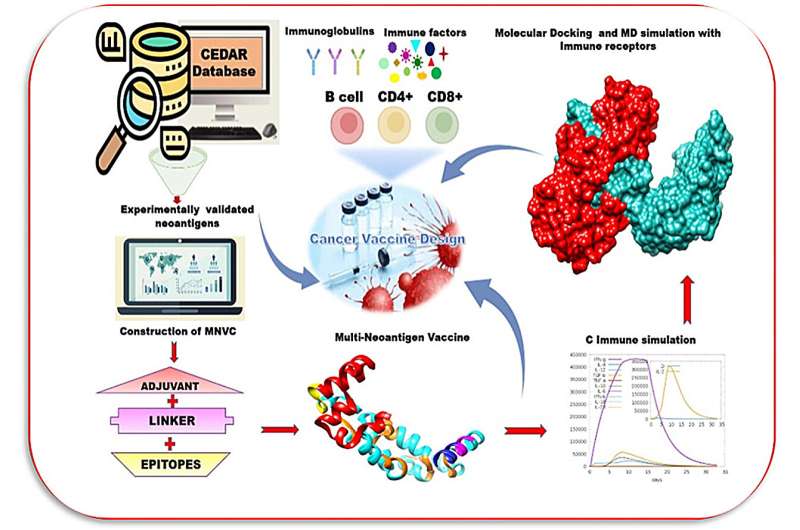“Our current focus is on addressing the growing challenges of melanoma, one of the most aggressive forms of skin cancer,” says Saba Ismail, a Ph.D. student in co-author and pharmacy professor Khaled Barakat’s lab in the Faculty of Pharmacy and Pharmaceutical Sciences and lead author of a paper introducing the vaccine, recently published in Computers in Biology and Medicine. “However, once we finalize this model, we will use it for other cancers as well, not just melanoma.”
Although the vaccine is still in the theoretical phase (not yet tested on actual cells or in humans), it marks “an exciting step in a very long journey to come,” adds Barakat.
The computer model of the vaccine contains multiple neoantigens—markers found on cancer cells that identify them to the immune system as something foreign. The body’s T cells recognize these neoantigens and are triggered to eliminate them. Neoantigen-based vaccines are a promising approach for cancer immunotherapy, the authors note in the paper, but identifying which neoantigens should be targeted for different types of cancer, and in different patients, can be a challenge.

